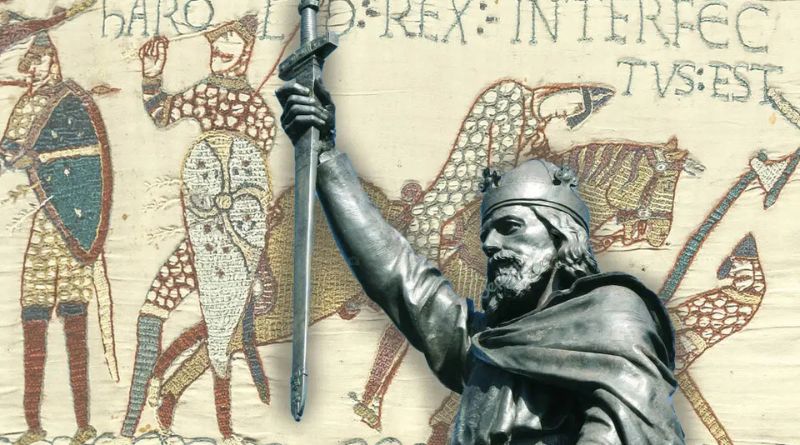The names Zale and Saxon may not immediately ring a bell for everyone, but both have significant cultural, historical, and linguistic importance in different contexts. While one may be familiar as a surname or brand, the other is rooted deeply in European history. In this article, we will explore the meanings, historical significance, and contemporary relevance of these two terms—Zale and Saxon—shedding light on their connections to both ancient and modern life.
Table of Contents
Zale: The Name and Its Origins
Zale is a name that has various meanings depending on the context in which it is used. Historically, it has appeared as a surname, a given name, and even as part of place names in some cases. In examining Zale, it’s important to look at both its linguistic roots and its modern-day associations.
1. Zale as a Surname and Given Name
The surname Zale is of relatively rare usage but is primarily found in English-speaking countries, particularly in the United States. It is believed to have originated from Slavic languages, where it was sometimes used as a short form of names like Zaleski or Zalewski, which are derived from the word “zalesie,” meaning “forest” or “wooded area.” Therefore, Zale could be connected to a person or family who lived near a forest or wooded area.
In addition to its Slavic roots, Zale has also been used as a given name. As a first name, it has a modern and unique sound, and though uncommon, it conveys a sense of individuality and connection to nature, particularly due to its forest-related meaning.
2. Zale in the Context of Modern Brands
Another common association with the word Zale is through the popular jewelry retailer Zales. Founded in 1924, Zales has become one of the largest jewelers in North America. While the spelling of the brand name includes an “s,” it is often pronounced similarly to “Zale.” The store is well-known for its extensive collections of engagement rings, diamonds, and fine jewelry.
In this context, Zale serves as a recognizable brand name that has built a reputation for luxury, trust, and quality in the jewelry market.
Saxon: The Ancient Tribe and Its Modern Legacy
The term Saxon has a far-reaching historical significance. Originally referring to a group of Germanic tribes, the Saxons played an important role in the development of European history, particularly in the formation of the English nation. Today, the word “Saxon” is used in various ways, often as a cultural reference or to describe people of English heritage. Let’s dive into the meaning and legacy of the Saxons.
1. The Saxons: Origin and Migration
The Saxons were a Germanic tribe that originated in the region of present-day northern Germany and Denmark. They were part of a larger group of tribes known as the Anglo-Saxons, which also included the Angles and Jutes. The Saxons were known for their warrior culture, which emphasized strength, honor, and a connection to their tribal roots.
The Saxons began migrating to the British Isles in the 5th and 6th centuries, following the decline of the Roman Empire. Over time, they formed several kingdoms in what would later become England. The Anglo-Saxon period lasted from the 5th century until the Norman Conquest in 1066, marking a pivotal era in British history.
2. Saxon Influence on English Culture
The impact of the Saxons on English culture and language is profound. The Anglo-Saxons introduced Old English, which became the foundation of the modern English language. Many common English words today have Saxon origins, and the structure of the language itself bears traces of their influence.
Saxon culture also left its mark on architecture, law, and governance. For example, the Saxons established a system of local governance that eventually evolved into the feudal system. Saxon churches, which were often simple and functional in design, laid the groundwork for later English religious architecture.
3. The Saxon Kings and the Formation of England
Notable historical figures such as Alfred the Great, who ruled from 871 to 899, exemplify the Saxon legacy. Alfred, often regarded as one of the greatest kings of England, is credited with uniting various Saxon kingdoms into a more cohesive and powerful England, laying the foundations for the English monarchy that would last for centuries.
The Battle of Hastings in 1066, where William the Conqueror defeated King Harold II, marked the end of Saxon rule in England. Despite the Norman victory, many Saxon traditions and practices continued to shape England’s development, influencing the country’s legal and political systems for years to come.
4. Saxon Revival and Modern Usage
Today, the term Saxon is still commonly used to describe the people of England, particularly in historical or cultural contexts. It is often used in reference to Anglo-Saxon heritage and identity, especially in relation to the early English kingdoms and their cultural legacy.
In some parts of the world, Saxon is also used as a surname or place name, symbolizing the connection to English or Germanic ancestry. It is not uncommon to find the term in the names of towns or historical landmarks, a reminder of the lasting influence of the Saxons in shaping European history.
Zale and Saxon: Connections and Contrasts
While the Zale and Saxon terms are not directly related, they each carry deep historical and cultural significance. Zale evokes a connection to nature, possibly through its roots in Slavic languages, and also has a modern association with the luxury jewelry brand, Zales. On the other hand, Saxon brings to mind ancient Germanic tribes and their profound influence on the development of English culture and language.
Both terms also highlight the intersection of heritage and modern life. Zale represents how names evolve and become part of contemporary commerce, while Saxon represents a centuries-old cultural identity that continues to resonate through language, history, and even surnames.
FAQs About Zale and Saxon
1. What is the origin of the name Zale? The name Zale has Slavic roots and is believed to derive from the word “zalesie,” meaning a forest or wooded area. It may have originally been used to describe someone who lived near or in a forest. It is also used as a surname in some cultures and occasionally as a given name.
2. What is the connection between the Saxons and the English language? The Saxons, particularly the Anglo-Saxons, played a major role in the development of the English language. The Saxon tribes brought Old English to Britain, which evolved into Middle and Modern English. Many words in today’s English are derived from Old English, with significant influences from the Saxons.
3. Who were the most famous Saxon kings? Some of the most famous Saxon kings include Alfred the Great, who is remembered for his defense against Viking invasions and for uniting various Anglo-Saxon kingdoms into a cohesive England. Other significant Saxon rulers include Æthelstan, the first King of all England, and Harold II, who was the last Anglo-Saxon king before the Norman Conquest in 1066.
4. Is Zale associated with the jewelry store Zales? Yes, Zale is commonly associated with Zales, the well-known jewelry retailer. Founded in 1924, Zales is recognized for its range of fine jewelry and has become one of the largest jewelers in North America.
5. What role did the Saxons play in the formation of England? The Saxons played a key role in the formation of England by establishing several kingdoms that eventually united into a single entity. Their culture, governance, and language laid the foundation for modern England, particularly through the Anglo-Saxon period that lasted until the Norman Conquest of 1066.
Conclusion
Both Zale and Saxon carry with them fascinating histories, whether through their association with ancient tribes, modern commerce, or cultural identity. While Zale is often tied to names, nature, and modern-day branding, Saxon evokes the powerful legacy of one of the most influential peoples in European history. Each term serves as a reminder of the diverse influences—ancient and modern—that continue to shape our world today.



